Main pal do pal ka shayar hoon,
Pal do pal meri kahani hai, Pal do pal meri
hasti hai, Pal do pal meri jawani hai…
Sahir Ludhinavi’s verse, hinting at the transience of life, has paradoxically become immortal, firing up imaginations long after he’s gone. Sahir was a people’s poet and yet a poet’s poet. Every lyricist, past or present, wanted to emulate the consummate ease with which he turned out lines, which were simple and yet wove a web of delicate meanings.
The versatile poet was born on March 8, 1921 in Ludhiana as Abdul Hayee. He took the nom de plume of Sahir Ludhianvi, which literally meant he was a poet from Ludhiana – ironically one of the busiest industrial hubs in India. He was said to have been born to a family of rich landowners. His mother reportedly divorced his father when he took a second wife. His father wanted his custody but was denied. Sahir was just 13 then and the domestic crisis and financial insecurity, affected him greatly. It may have led him towards a commitment phobia later as all his rumoured affairs never fructified into a steady relationship.
Sahir started writing young. As a writer and a poet he won accolades from his peers and seniors in school and college. After passing out from Khalsa High School in Ludhiana he attended S. C. Dhawan Government College in Ludhiana from where he was supposedly expelled for sitting in the lawn with a girl. He then shifted to Lahore where he took admission in Dayal Singh College. The move inducted him into Lahore’s literary circle, where he published his masterpiece, Talkhiyan – a heady mix of poems on the bitterness of love and life. His mastery over Urdu got him appointed as the editor of the progressive Udru periodicals Shaahkaar and Savera as well as Pritlari, where his fierce writing and deft editing pumped up the circulation. He joined the Progressive Writer’s Movement. But his literary barbs against the Partition and the loss of solidarity between Muslims, Hindus and Sikhs angered the Pakistani Government. He left Pakistan and shifted to Mumbai (then Bombay). He took to writing lyrics as a means of livelihood.
Writers in Mumbai including Shahid Lateef, Krishan Chander, Ismat Chugtai, Kaifi Azmi and others from IPTA welcomed him with open arms. He soon made his debut as a lyricist in Azadi Ki Raah Par (1949). Badal rahi hai zindagi is said to be his first film song. However, it was in 1951, with the release of two films, Naujawan and later Baazi, that he became a favourite of the masses. Thandi hawayein lehra ke aayen from Naujawan and Tadbir se bigdi hui taqdeer bana le from Baazi are still popular. Both films had music by SD Burman and thanks to that friendship; he became part of the Guru Dutt-Dev Anand circle. Guru Dutt’s poetic side appealed to him and the merging of their sensibilities resulted in Pyaasa (1957) – their best work together as well as individually. It’s also said that the poet Vijay’s character from the film was based on Sahir’s own disillusionment with the materialistic world.
It’s alleged that a rift appeared between Dada Burman and Sahir after Pyaasa as both artistes claimed it was their work, which contributed to the popularity of the songs. Perhaps, it was this falling apart, which led him to insist that composers adapt their tunes to his lyrics and not vice-versa. He was able to form long associations with composers like Khayyam, Ravi, N Dutta, Roshan and Madan Mohan despite such a clause. Though not prolific as his peers, what he wrote became the gold standard in lyrics. It became a matter of prestige for filmmakers to have him on board.
As a poet, he never restricted himself to just themes of love. He could turn his hand at every topic and on both sides of an argument. For instance, he wrote – Woh subhah kabhi to aayegi (that dawn will break some day) and countered that with Woh subhah hami se aayegi (we’ll be the change). His love poetry carried a tinge of sadness as he believed that perfect love was not possible. It’s alleged that writer Amrita Pritam was deeply in love with him. Sahir was said to visit her home, where they would sit companionably in a smoke-filled silence. Later Amrita, apparently, used to smoke those butts, after he had left… He was also linked to singer Sudha Malhotra. Apparently, this intense friendship led to an alleged rift with Lata Mangeshkar, what with him asking for a rupee more than what the producers were paying the songstress supreme. Towards the later years, he reportedly turned into an alcoholic, leading to his untimely death at the age of 59 on October 25, 1980…
Here’s taking a look at Sahir Ludhianvi’s songs, which have outlived the films and generations…
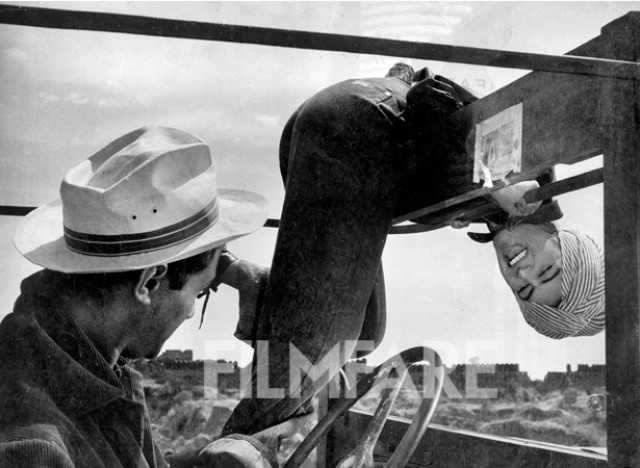
Taxi Driver
Sazaa (1951)
This little known Dev Anand romance had music by SD Burman. Sahir wrote just one song in the film, Lata’s haunting dirge, Tum na jaane kis jahan mein so gaye.
Baazi (1951)
Geeta Dutt’s melodious voice turned around Tadbir se bigadi hui taqdeet bana le, originally penned as a ghazal, into a club ditty to the tunes of SD Burman. The other songs like Suno gajar kya gaaye and Ye kaun aaya ke were popular too.
Jaal (1952)
Inspired by American noir films, this had Dev Anand playing an anti-hero. The film was set in Goa and the music by SD Burman had a regional flair. Lata dominated the album, with songs like the flirtatious Chori chori meri gali aana hai bura and the sad version of Yeh raat yeh chandni fir kahan. The male version, sung by Hemant Kumar, remains one of the best odes to longing. It also had the delightful Kishore Kumar-Geeta Dutt duet, De bhi chuke hum dil nazrana dil ka.
Taxi Driver (1954)
Dev Anand played a golden-hearted taxi driver in this film directed by brother Chetan Anand. Talat Mehmood brought out the agony of the doomed lover Jaaye to jaayen kahaan. But not every song was gloomy. It also had the don’t-give-a-damn – Chahe koi khush ho chahe gaaliyan hazar de, sung with verve by Kishore Kumar, as well as the club number Ae meri zindagi aaj raath jhoom le, sung by Lata and picturised on Sheila Ramani. The music was by SD Burman.
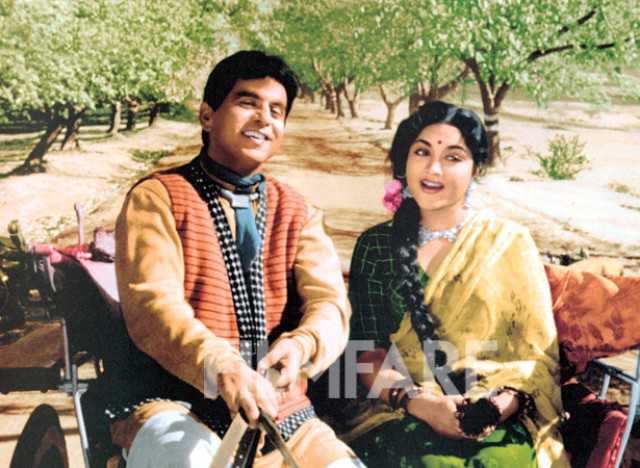
Naya Daur
House No. 44 (1955)
SD Burman and Hemant Kumar provided gravitas to Sahir’s lyrics in songs like Chup hai dharti chup hai chaand sitaare, as also in the pathos filled Teri duniya mein jeene se to behtar hai ke mar jaayen. It also had a delightful Lata solo, Phaili hui hai, sapnon ki bahen, symbolising hope.
Munimji (1955)
It had the philosophical Jeevan ke safar mein rahi, sung by Kishore and composed by SD Burman. It also has a sad version by Lata, with slightly altered lyrics. Geeta Dutt’s Dil ki umangen hain jawaan is another gem.
Railway Platform (1955)
Madan Mohan composed for this debut film of Sunil Dutt. It has one of the most romantic of Sahir’s ghazals Chaand maddham hai assaman chup hai. It also had Dekh tere bhagwan ki halat kya ho gayi insaan, Sahir’s answer to Kavi Pradeep’s Dekh tere sansar ki halat kya ho gayi bhagwan from Naastik (1954). Basti basti parbat parbat from the film spoke of the poet’s love for nature.
Funtoosh (1956)
Here the ‘serious’ Sahir proved that he could write as good nonsense as the next man. Ae meri topi palat ke aa is fun and Dene wala jab bhi deta is a real Jabberwocky of a song. Lewis Caroll would have been happy with this one. Kishore Kumar sang both and showed his solemn side too with Dukhi man mere. The music was composed by SD Burman.
Naya Daur (1957)
For those who revered him for his Urdu, Naya Daur was an eye opener where he used Hindi folk words, in keeping with the film’s rural backdrop. Saathi haath badhana saathi re, the clarion call of the worker, spoke of his communist leanings. Yeh desh hai veer jawano ka gave voice to his nationalist fervor. Ude jab jab julfe teri has a woman gazing at her beloved. Reshmi salwar kurta jaali ka, sung by Shamshad Begum and Asha Bhosle is a delightful role-play duet while Aana hai toh aa reflects upon forgiveness and redemption. The comedic Main Bambai ka babu, picturised on Johnny Walker, completes one of the most versatile albums by Sahir. The music was by OP Nayyar.
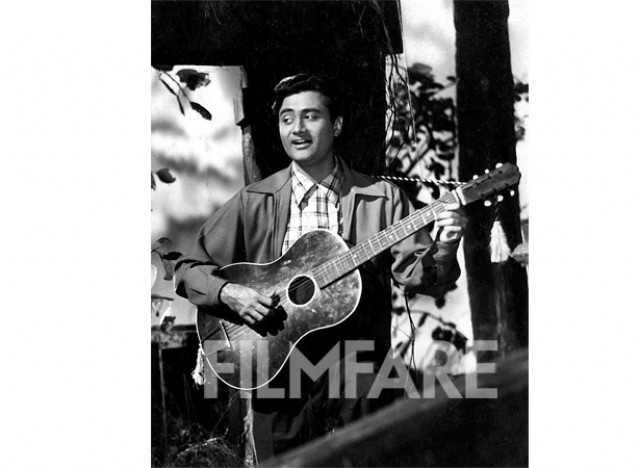
Pyaasa (1957)
The film depicted the frustrations of a poet failing to come to terms with a decadent system. It had light-hearted songs like Jaane kya tune kahi and Hum aap ki aknhon mein juxtaposed with Tang aa chuke hain kashmakashe zindagi se hum, Jaane woh kaise log they jinke and the poet’s renunciation of the world, Yeh mehlon, yeh takhton, yeh taajon ki duniya. For once, the music and the actors were unimportant, only words mattered.
Phir Subah Hogi (1958)
Sahir’s comment on the socio- economic condition echoed angst. Chino Arab hamara, for instance, is a satirical take on Iqbal’s Saare jahan se accha. Aasman pe hai khuda aur zameen pe ham is another dig at Nehruvian socialism. Woh subhah kabhi to aayegi questions as to when the common man would get his due. The unlikely pair of composer Khayyam and Sahir was used instead of the Shankar-Jaikishen-Shailendra combo in a Raj Kapoor starrer. Sahir also gave one of his best ghazals to Raj – the duet Yun na keeje meri gusthaq nigahon ka gila – sung by Mukesh and Asha Bhosle.
Dhool Ka Phool (1959)
Sahir was a true blue secularist. They say one reason why he came to Bombay from Lahore was because he missed his Hindu and Sikh friends, who had fled because of the Partition. In the song, Tu Hindu banega na Musalmaan banega, his secular tendencies come to fore. The film also had the Mahendra Kapoor-Lata duet, Tere pyar ka aasara chahata hoon. Music was by N Dutta.
Barsaat Ki Raat (1960)
Sahir, probably, wrote the longest qawwali in a film, Na to kaarvan ki talaash hai, for this film. The 12-minute song is a feat in singing, what with Asha Bhosle, Sudha Malhotra, Mohammed Rafi and Manna Dey complementing each other. It also had other melodious songs like Zindagi bhar nahi bhoolegi and Maine shayad tumhe pehle bhi kahin dekha hai. Sahir showed his deep understanding of Hindustani classical when he wrote Garjat barjat saawan aayo re, sung by Suman Kalyanpur and Kamal Barot. Roshan excelled as the composer in this musical feast.
Hum Dono (1961)
This Navketan film had Jaidev’s music rather than SD Burman’s. It perhaps paved the way for Sahir’s return to the banner. Zindagi ka saath nibhata chala gaya hinted at the vagaries of life. The film also had the evergreen duet, Abhi na jao chodkar, sung by Rafi and Asha and the philosophical, Kabhi khud pe, kabhi halaat pe rona aaya. The film is also noted for its bhajans, Allah tero naam and Prabhu tero naam, sung with a divine grace by Lata.
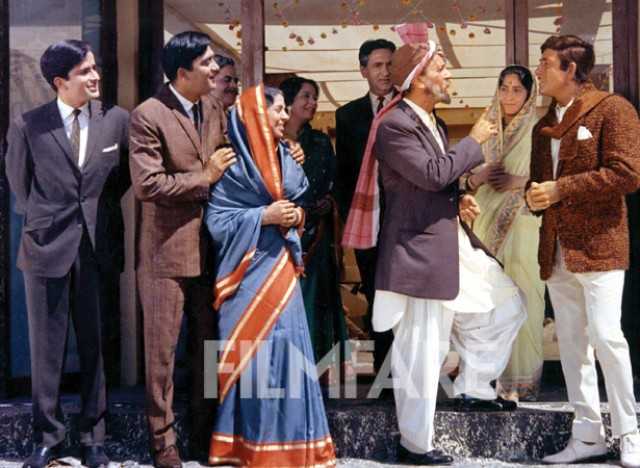
Gumrah (1963)
This BR Chopra film revolved around an extramarital affair and Sahir wrote the perfect song for the situation, Chalo ik baar phir se, ajnabi ban jaayein. Its other poetic gems include Aap aaye, toh khayale, dil e naashad aaya, In hawawon mein, Yeh hawa yeh fiza, all sung in robust Punjabi notes by Mahendra Kapoor. Ravi provided the music.
Dil Hi To Hai (1963)
Roshan and Sahir teamed up for this Raj Kapoor comedy and came up with songs like Churra le na tum ko yeh mausam suhana, the classical Laga chunri mein daag made immortal by Manna Dey, the qawwali, Nighae milane ko jee chahta hai, a lover’s complain, Tum agar mujhko na chaho to koi baat nahin and the heartrending Yun hi dil ne chaha tha rona rulana sung by Suman Kalyanpur.
Mujhe Jeene Do (1963)
Jaidev gave the music to this daaku film and with Sahir, turned it into a musical. Ab koi gulshan na ujde, ab watan azaad hai, was Sahir’s homage to both Independence and the dacoit surrender movement started by Vinobha Bhave. It also had a great mujra, Raat bhi hai kuch bheegi bheegi, as also a song depicting hope for the surrendered dacoits, Tere bachpan ko jawani ki dua deti hoon.
Taj Mahal (1963)
Roshan and Sahir created magic for this period musical, known for songs like Jo wada kiya woh, Jo baat tujhme hai and Paanv choo lene do phoolon ko. Sahir won his first Filmfare Award for the film.
Waqt (1965)
Ravi and Sahir celebrated middle-aged love by composing Ae meri Zohrajabeen. It also had Sahir’s famous ghazal, Maine ek khwab sa dekha hai, the philosophical Aage bhi jaane na tu and the love duet Din hai bahar ke for this multi-starrer.
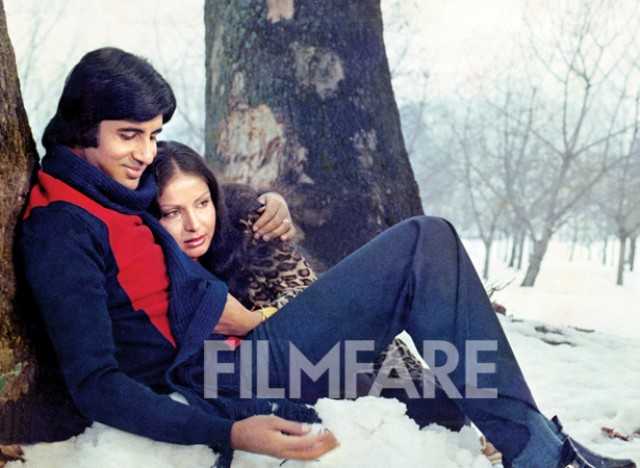
Hamraaz (1967)
This thriller was a total Mahendra Kapoor show all the way, what with Ravi’s tunes testing his vocal chords in songs like He neele gagan ke tale, Kisi patthar ki moorat se, Tum agar saath dene ka waada karo and the high pitched Na moonh chupa ke jiyo.
Bahu Begum (1967)
This melodramatic Muslim social was saved by Roshan and Sahir with songs like Hum intezaar karenge, sung by Rafi and Asha and the haunting Duniya kare sawal sung by Lata Mangeshkar.
Neelkamal (1968)
Ravi and Sahir created the most played song in weddings, the tearjerker Baabul ki duaaen leti jaa, for this film. The story goes that Rafi’s own daughter had recently got married, so the pain was personal for him. It also had the popular, Tujhko pukare mera pyar number.
Daag (1973)
The choice of Laxmikant-Pyarelal for a Yash Chopra film was unusual and their combination with Sahir gave us perhaps his frothiest song, Ab chahe maa roothe ya baba, as also Ni main yaar manna ni. It also had the supremely romantic, Mere dil mei aaj kya hai, which is up there with any Kishore-RD Burman song for Rajesh Khanna. Hum aur tum and Jab bhi ji chahe nayi duniya too are still hummable.
Ek Mahal Ho Sapnon Ka (1975)
Here, Sahir gave Kishore and Dharmendra both one of the most poetic songs of their career, Dekha hai zindagi ko, kuch itna kareeb se. It also had the melodic Dil mein kisi ke pyaar ka jalta hua diya, sung by Lata. Ravi gave the music.
Kabhi Kabhie (1976)
The film was perhaps a watershed of Sahir’s film career and fittingly used his poetry without any adjustments. His most celebrated poem, Kabhi kabhie mere dil mein khayal aata hai recited by Amitabh Bahchan in his deep baritone made it a timeless rendition. Khayyam did ample justice to his old friend’s sentiments, letting the lyrics dictate the music in songs like Main har ik pal ka shayar hoon, Main pal do pal ka shayar hoon, Kabhi kabhie, both duet and solo versions. It also had a lovely lullaby, Mere ghar aayi ek nanhi pari and frothy duets like Tera phoolon jaisa rang and Tere chehre se as well.